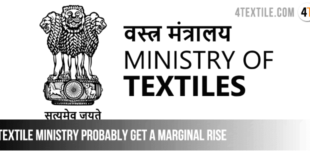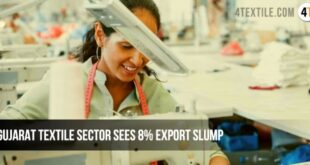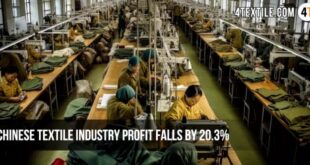In a meeting held recently with the Union Finance Minister Nirmala Sitharaman, the textile industry had urged for a uniform GST rate for the entire sector
At a recent meeting with Union Finance Minister Nirmala Sitharaman, it had urged a uniform GST rate for the entire industry.
Textile industry hopeful for a cut in GST rate on synthetic fiber
Currently, the cotton textile value chain – yarn, fabric, apparel, and others – attracts a uniform GST rate of five per cent. Purified terephthalic acid (PTA), the key input in making polyester yarn and fabric attracts 18 per cent. And, polyester yarn and fabric are taxed at 12 per cent and five per cent, respectively.
“Because of the current inverted tax structure, the requirement of working capital for synthetic yarn goes up to the extent of six per cent due to higher GST incidence on raw material than finished products. Therefore, there is a need to rationalise GST across the value chain from PTA, yarn and fabric to five per cent. The cut in rate would enhance cash flow and reduce prices of synthetic yarn and fabric,” says Madhu Sudhan Bhageria, chairman, Filatex India. In cotton fabric, there is no such inverted duty structure.
At the said meeting, the finance minister had assured a re-look on the matter. Polyester yarn is 78 per cent of the total volume of man-made fibres produced in India.
Ujjwal Lahoti, chairman of The Cotton Textiles Export Promotion Council, calls for a uniform five per cent of GST across the entire textile value chain. “While the cotton textile industry is enjoying five per cent GST, the same should be applicable for synthetic textile players as well. A uniform duty structure would help with long-term decision making on investment and competitiveness,” he said.
An investment of Rs 1,000 crore in the polyester yarn sector can generate employment for 2,500 people, say companies.
Global production of natural fibres was nearly 30.6 million tonnes in 2008 and is now 32 mn a year, a compounded annual growth rate of 0.5 per cent. Synthetic fibres have grown from 45 mn in 2008 to 79 mn currently, a compounded annula rise of 5.9 per cent in the past decade.
 4Textile.com World Textile & Apparel Industry Events, News
4Textile.com World Textile & Apparel Industry Events, News







